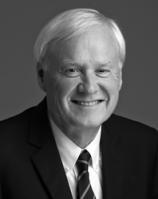Bobby Kennedy: A Raging Spirit
Review
Bobby Kennedy: A Raging Spirit
Regular viewers of Chris Matthews' MSNBC show, “Hardball,” will be well acquainted with his passion for political heroes and his corresponding disappointment at how far short of the ideal our current crop of politicians fall. In two previous books about John F. Kennedy, Matthews has never made a secret of his admiration for the Kennedy family. With this new biography of younger brother Bobby, those themes merge in a sympathetic portrait of someone Matthews convincingly argues is “the kind of leader we lack today.”
BOBBY KENNEDY: A RAGING SPIRIT is a brisk yet informative, if largely conventional, political biography of a man who emerged from his brother Jack’s shadow for only the few short years between his election to the United States Senate from New York in 1964 and his own assassination in 1968. That occurred on the night his victory in the California Democratic primary at least made plausible the idea that he might wrest his party’s nomination away from Vice President Hubert Humphrey and fellow senator Eugene McCarthy and become the second Kennedy in a decade to occupy the White House.
Matthews' book capably traces the arc of Bobby’s career, from his work as counsel to Senate committees in the 1950s to his key role in his brother's challenging campaigns for the House of Representatives in 1946, the Senate in 1952 and president eight years later. As attorney general, he was one of the prime influences urging President Kennedy toward a more aggressive stance on civil rights, a subject that’s treated at length in Steven Levingston's excellent new book, KENNEDY AND KING.
"Matthews' book capably traces the arc of Bobby’s career, from his work as counsel to Senate committees in the 1950s to his key role in his brother's challenging campaigns for the House of Representatives in 1946, the Senate in 1952 and president eight years later."
Recent years have produced other strong works focusing on discrete aspects of Bobby Kennedy's career, including James Neff’s VENDETTA, the story of his relentless battle with the corrupt Teamsters union boss, Jimmy Hoffa, in the 1950s and ’60s, and Thurston Clarke’s THE LAST CAMPAIGN, a sympathetic account of Bobby’s whirlwind run for the Democratic presidential nomination in 1968. Those who want to explore events that Matthews, of necessity, must treat in a more summary fashion will find these books rewarding reading.
BOBBY KENNEDY clearly is directed at a general audience, and anyone acquainted with its subject’s life will find much that’s already familiar. But even those readers may be surprised to learn, for example, that Bobby once contemplated a run for Congress against Boston Democratic political icon (and former Matthews boss) Tip O’Neill, or even a move to Connecticut to challenge incumbent Senator Thomas Dodd. It’s also startling to learn that in the wake of his brother’s defeat in a brief, but intense, campaign to be Adlai Stevenson’s running mate in 1956, Bobby voted for Dwight Eisenhower and eventual Kennedy antagonist Richard Nixon in the general election, vivid proof, perhaps, of his legendary elephantine memory for his adversaries’ transgressions.
As Matthews describes it, Bobby Kennedy’s political ideology evolved over the course of his life, as he moved from once viewing the notorious Red-baiting senator Joseph McCarthy as a mentor and friend, to vociferously opposing the Vietnam War after his election to the Senate. Matthews doesn’t display much interest in psychological analysis, but he takes issue with those who argue it was only JFK’s assassination in 1963 that transformed his younger brother into a more sensitive, compassionate public servant, one who demonstrated what Matthews calls an “expanding empathy for life’s victims” in the final years of his life.
Matthews’ biography also is, in some respects, an unabashedly personal story. Raised in a middle-class Catholic family in Philadelphia, he acknowledges “that the Kennedy family and the Matthews family shared the same conversations, with the same enduring public friends and foes --- and, with them, our common triumphs and resentments.” And yet, as Matthews reveals, his own family, strongly anti-Communist and fearful that a new generation of Catholic political leaders embodied in the charismatic Kennedy brothers would meet the same fate as Al Smith, the first Catholic presidential nominee in 1928, wasn’t all that quick to embrace Jack and Bobby.
Without drawing any explicit comparison to contemporary politics, Matthews intimates as well that a Democratic Party looking for a message that will appeal to the disaffected white voters who form the core of Donald Trump’s base should study Bobby's political appeal, one that saw him equally at home among poverty-stricken whites in the hills of West Virginia or marching in solidarity with Cesar Chavez to help organize migrant workers in California’s vineyards.
Chris Matthews is no cynic, dismayed as he is at how we’ve “gotten so used to treating our politics as zero-sum that we’ve lost the faith that joint action by the people is capable of bringing joint success.” Pointing to the estimated two million people, black and white, rich and poor, who lined the railroad tracks as Kennedy’s body was transported from St. Patrick’s Cathedral in New York to Arlington National Cemetery for burial in June 1968, he asks why we no longer seem to have political leaders willing to advance the interests of the “discarded factory worker and the ignored inner-city youth.” For Matthews, and perhaps for some aspiring future leader, Robert Kennedy’s life may provide the inspiration to answer that question in a more uplifting way.
Reviewed by Harvey Freedenberg on November 3, 2017
Bobby Kennedy: A Raging Spirit
- Publication Date: October 16, 2018
- Genres: Biography, History, Nonfiction, Politics
- Paperback: 416 pages
- Publisher: Simon & Schuster
- ISBN-10: 1501111876
- ISBN-13: 9781501111877




